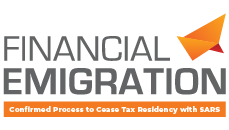FEATURED IN
“Work from anywhere” is the theme of the day and, while this seems a simple enough endeavour in theory, in reality there are many concerns which must be taken into account and most of which arise from a tax perspective.
One critical aspect of emigration is having sufficient available funds on hand. It is not uncommon for employment to not yet be forthcoming, and most often, there are significant set-up costs that will need to be incurred by an expatriate, to set-up not only themselves, but their key support system such as family. Either way, liquidity is key – if improperly handled, one could face an untimely return trip to South Africa.
Special Visa Programmes
Many countries the world over, including Portugal and Mauritius (as often recurring examples) offer immigration programmes which are wholly or partly based on in-country investments, with the view of an economic boost for the respective country. This is intended to incentivise inbound foreign investment into the country and generally offers an ideal vehicle to secure long-term residence and financial stability.
This is typically a popular vehicle for higher net worth individuals to enter into a country; however, this must also be considered from a tax perspective. Capital gains or profits which are made from these investments may be subject to tax in South Africa, if a taxpayer is seen as a South African resident for tax purposes.
This means that, if improperly handled, profits made from a foreign investment may remain subject to tax in South Africa and which could substantially erode any progress made in the other country, regardless of whether the said profit is taxed in the other country.
Direct Foreign Investment
A steady option available to emigrants from South Africa is also direct foreign investment. For example, the direct purchase of immovable property, shares, opening of a savings or other bank account, or even acquiring and transferring cryptocurrency are all seemingly viable options.
Provided that there is enough latitude given to expatriates on investments they are permitted to make, the only limiting factor would be the liquidity of the taxpayer and whether they can draw on sufficient cash to meet their in-country financial needs and obligations. It should be kept in mind that there may also be limitations and controls on the amounts that a person is permitted to transfer out of South Africa each year.
However, in most cases, a taxpayer may not have the cash resources at the ready and available to finance their relocation to another country without first disposing of assets which are held by them in South Africa and abroad. Where this is the case, capital gains tax (“CGT”) becomes a relevant concern and is worth considering well beforehand.
Furthermore, regardless of whether the taxpayer disposes of their assets prior to their departure from South Africa and/or investment in the other country, this may also result in complexity and unforeseen costs from a tax perspective, regardless of whether tax is imposed by one’s new home country, due to that taxpayer’s residency status in South Africa.
Cessation of Residency Status
Upon emigration, one of the most pertinent issues to be addressed is whether a taxpayer will still be considered a “resident” for tax purposes in South Africa. A resident is liable to tax on their income as derived from worldwide sources (subject to certain exemptions) and a non-resident is only subject to tax on their income derived from a source within South Africa.
Equally important is a taxpayer’s residency status in their new home country, which could predicate that they are also considered to be liable to tax on income from worldwide sources in that country. If the taxpayer is considered a resident in both countries for tax purposes, regard should be had for the provisions of the double tax agreement or “DTA” between the two countries, to confirm in which country the taxpayer will be exclusively tax resident.
The distillation of one’s tax residency is an absolutely crucial matter when emigrating, as the absence of this determination may result in double taxation between South Africa and the other country. Knowing which country may rightfully impose tax liability for income generated from worldwide sources, will go a long way in informing where and how to approach foreign investment.
Deemed CGT Liability or “Exit Tax”
When ceasing to be a resident in South Africa for tax purposes, this results in the so-called “exit tax”. The exit tax is, in reality, a deemed disposal of one’s worldwide assets, at their market value (on the day prior to residency cessation) and a deemed reacquisition of those assets on the day that residency ceased. In effect, this creates a potential CGT liability in the hands of the taxpayer concerned.
While CGT is levied at a maximum effective rate of 18% in South Africa, it is well noted that this would go a long way in disincentivising the cessation of residency in many cases, depending on the nature of the assets held by the individual – the exit tax does not apply to immovable property situated within South Africa. There is no escaping this liability in respect of applicable assets upon the cessation of one’s residency and, for this reason, it is important to tread carefully in each case.
Proposed Law Changes
It is no secret that there are changes which have been and are being made to the laws around expatriates. As from 1 March 2020, the foreign employment income exemption provided for under section 10(1)(o)(ii) of the Income Tax Act has been limited to R1,25 million per annum. Notwithstanding this, there may be further incoming changes for an emigrating taxpayer to consider.
Of these prospective law changes, one that stands out in relation to an expatriate ceasing their South African tax residency is the proposed deemed retirement fund withdrawal as outlined in Annexure C of the 2021 Budget Review document. This contemplates that South Africa does not have an opportunity to tax the retirement interests of emigrant South Africans upon withdrawal, where a DTA allocates the exclusive taxing right over the amount to the other country concerned.
While at this stage National Treasury is yet to provide a concrete timeline for the introduction of the deemed retirement fund withdrawal, it should be noted that this would foreseeably constitute circumvention of certain treaties, and which may further complicate the financing of one’s new life abroad.
Financing Emigration
Given all of the less-than-ideal financial considerations when emigrating, if one plans to relocate from South Africa then it is important to ensure that they have sufficient liquidity to meet their needs and settle their obligations not only upon departure but also for some time thereafter as well.
This means that tax planning is necessary to ensure that a person does not get caught in the pitfalls on moving abroad, whether this is from the perspective of possible double taxation, a too-high tax burden or as a consequence of the exit tax.
In most cases, an individual who is emigrating will reasonably acquaint themselves with the pertinent tax considerations when transferring funds abroad to fund their lives outside of South Africa, and it is prudent to ensure the correct advice is sought beforehand in every case.




